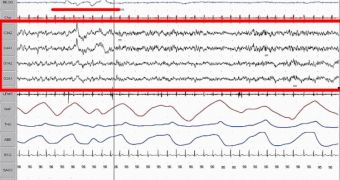The conclusions of a new scientific study appear to indicate that dreams and sleep are useful for removing painful memories, or at least making them easier to withstand and manage. From this perspective, it's not necessarily time that heals all wounds.
Investigators from the University of California in Berkeley (UCB) have established that dreaming is an important tool the human brain uses to make ordeals easier to handle. The process occurs during rapid-eye movement (REM) sleep, which is when most dreams occur.
One of the most important things that take place at that time is the processing of emotions and experiences that occurred over the day. These include difficult memories as well. While they are not erased, they are made more benign, which is enough to make us feel better when we wake up.
The expression “sleep on it” therefore gains new meanings, experts say. During REM sleep and dreams, the chemistry underlying our response to stress is shut down for certain amounts of time. When this happens, different mechanisms take over and address negative experiences.
These discoveries are important from two main perspectives. First, they provide new insight into conditions such as post-traumatic stress disorders (PTSD), and second, they can be used to figure out why we dream at all.
Details of the new investigation were published in the November 23 issue of the renowned scientific journal Current Biology. The senior author of the research was UCB associate professor of psychology and neuroscience Matthew Walker.
“The dream stage of sleep, based on its unique neurochemical composition, provides us with a form of overnight therapy, a soothing balm that removes the sharp edges from the prior day’s emotional experiences,” the investigator explains.
It could be that, in the case of PTSD patients, dreams and REM sleep lose their ability to take the edge off old, harmful memories. As such, individuals suffer negative side-effects every time they are exposed to stimuli resembling those that triggered the condition in the first place.
Whenever a PTSD “flashback is triggered by, say, a car backfiring, [patients] relive the whole visceral experience once again because the emotion has not been properly stripped away from the memory during sleep,” Walker explains.
REM sleep patterns are also disrupted in people suffering from conditions such as depression. This may be why there are thoughts that they cannot get out of their head, obsessions that endure for years. If the root cause is not addressed, it's easy to understand why these people experience relapses fairly often.

 14 DAY TRIAL //
14 DAY TRIAL //